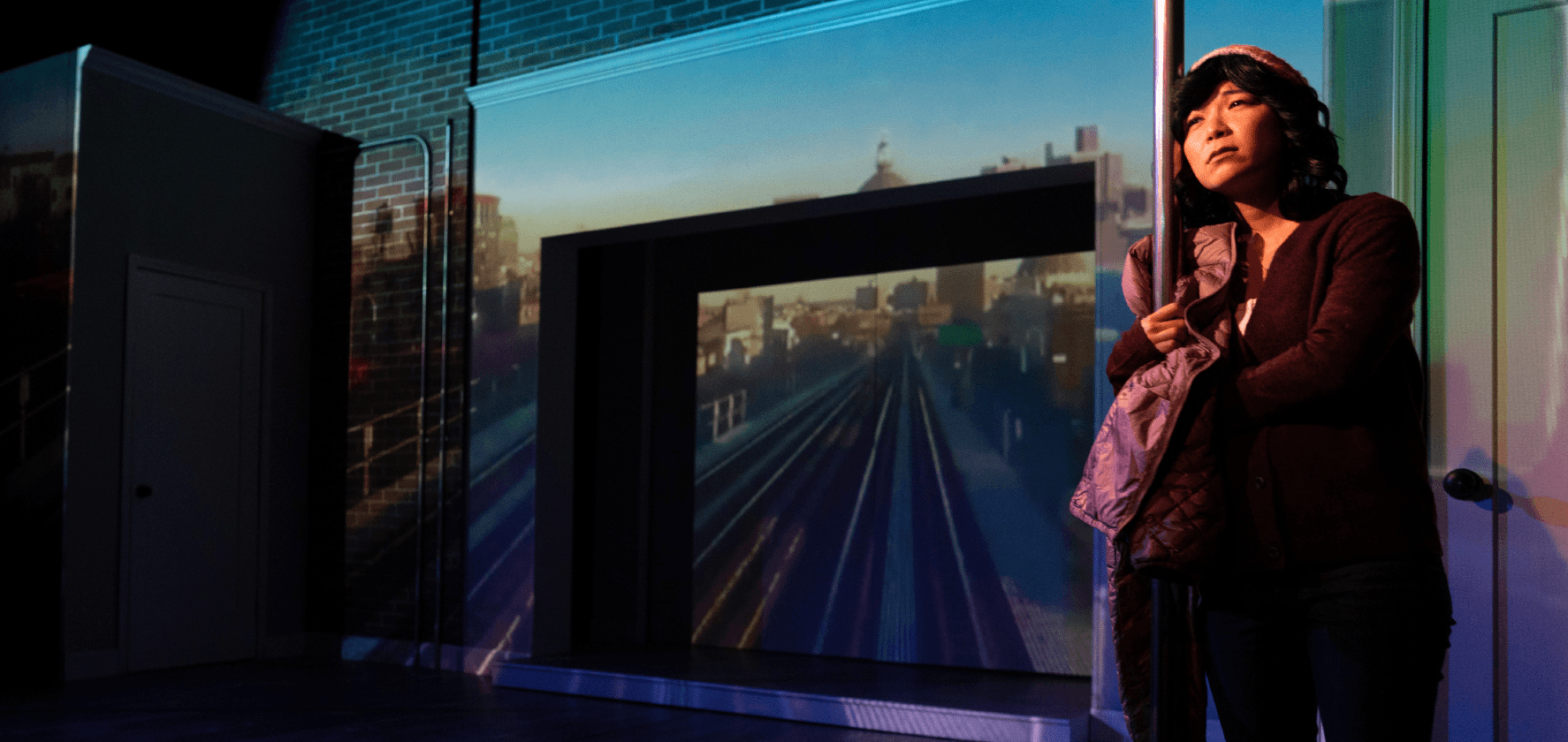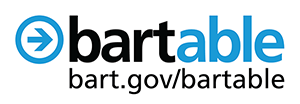Sheila Callaghan on Elevada
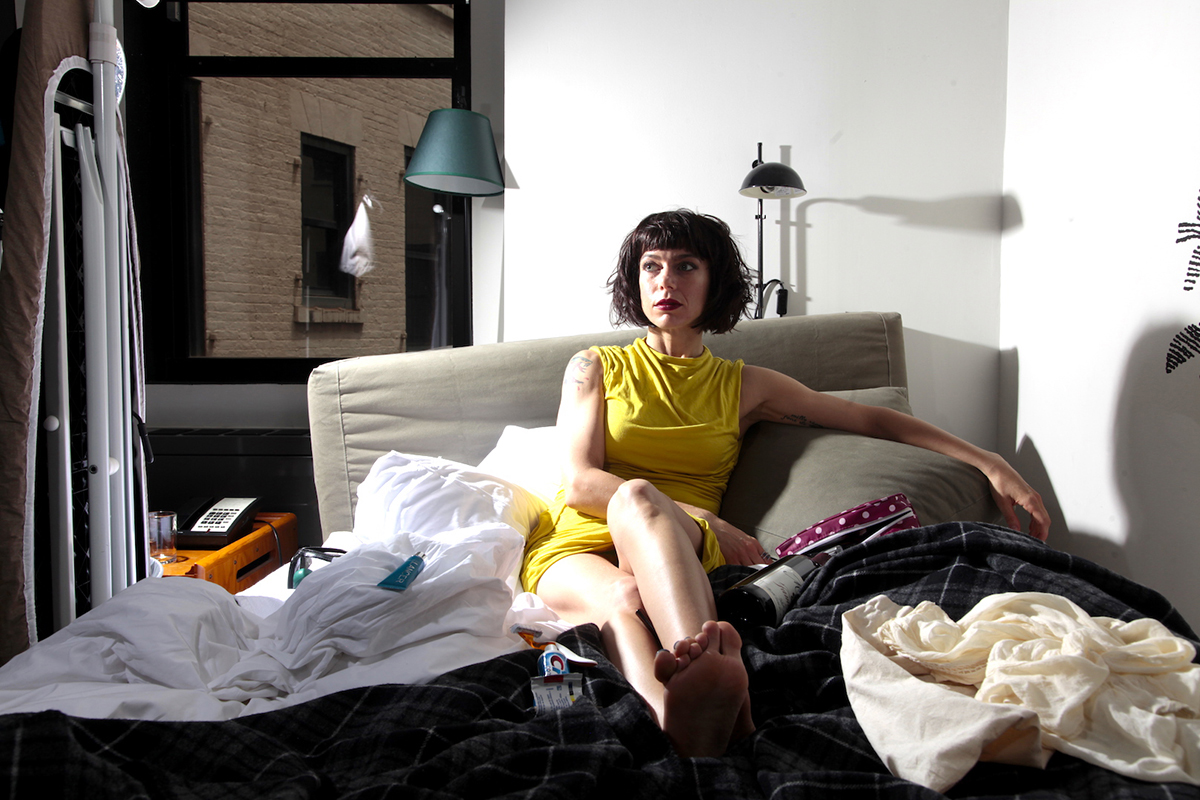
“It’s a romantic comedy… I’ve never written a romantic comedy before in my life… I usually write more political plays, stylistically unconventional plays … plays that say something, that attempt to do something experimental with either their form or language. This time, I was kind of working on this other play I am writing based on an Internet meme that’s going up at Woolly Mammoth this fall called Women Laughing Alone with Salad… it’s a bitchy, feminist play…it’s experimental, deconstructed, kind of a big, different kind of play. Meanwhile, I had this Yale commission, and I said I wanted to write the opposite of that.”
Source: New Haven Register
Elevada was first produced in 2015 as a commission from Yale Rep. Sheila came to Berkeley recently to workshop the play with the cast and Director Susannah Martin, presenting us with a new draft right as we began rehearsal. She has continued to collaborate and rework the play from top to bottom throughout the process. While it is technically the third production of Elevada, it is the first showing of this brand new version.
What is an “elevada?”
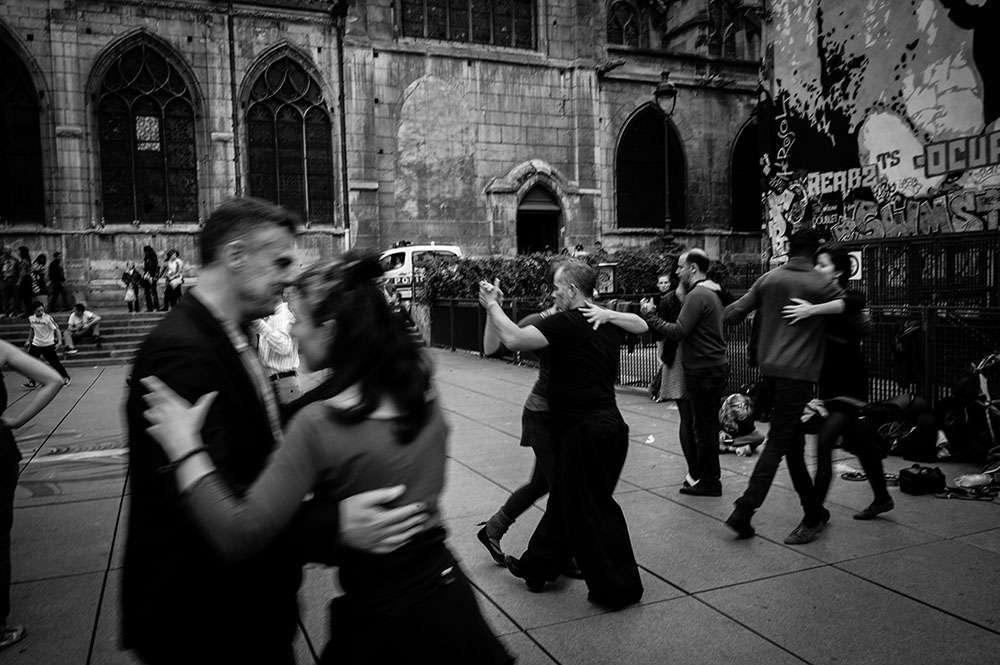
“You will first learn to let your feet caress the floor, fall in love with the floor.”
—June, Elevada
“Elevada” is a tango term for dancing without keeping the feet on the floor. This was the style before the turn of century when tango was danced on dirt surfaces or on the cobblestone streets.
Once tango went uptown enough to actually be danced on floors (wood, tile, or marble) the dancers fell in love with the floor, thus “caressing the floor.”
Corporate personhood
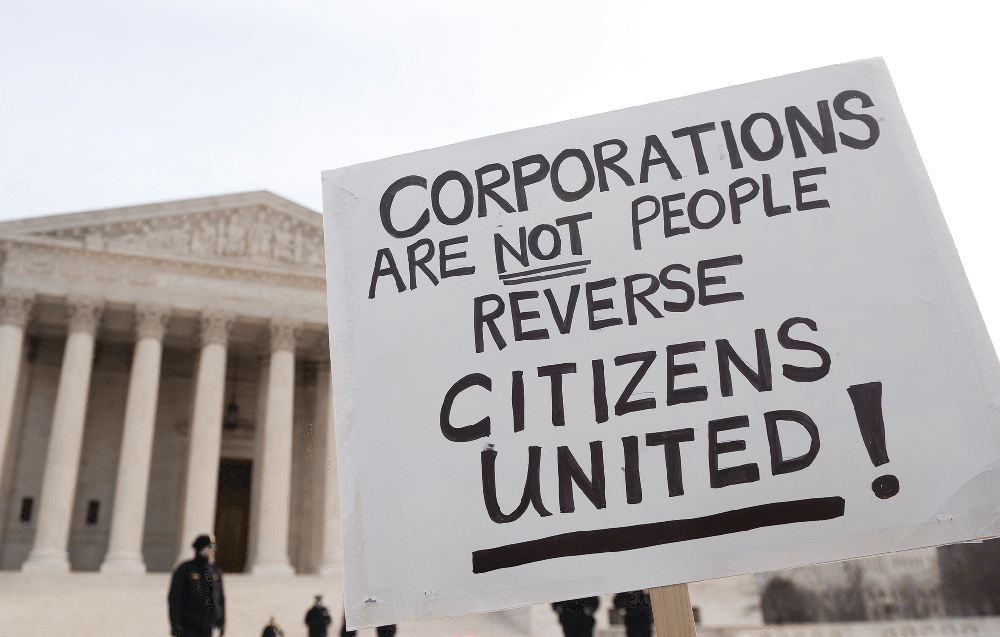
“The 14th Amendment can protect these corps as individuals but they can’t protect the individuals within the corporation.”
—Khalil, Elevada
The 14th Amendment states that the government cannot “deprive any person of life, liberty or property, without due process of law; nor deny to any person within its jurisdiction the equal protection of the laws.”
Originally adopted after the Civil War to protect the rights of freed slaves, the 14th Amendment has exponentially expanded the protection of civil rights for all Americans over the past 150 years. It’s been cited in more litigation than any other amendment to the U.S. Constitution, and it has been at the center of many of the most famous Supreme Court decisions, including school desegregation (Brown v. Board of Education), abortion (Roe v. Wade), and same-sex marriage (Obergefell v. Hodges).
Under U.S. law, some essential rights of the 14th amendment belong not only to American citizens, but also corporations — thanks to a few key Supreme Court cases and a controversial legal concept known as corporate personhood.
In 2010, Citizens United vs. Federal Election Commission (FEC), the most sweeping expansion of corporate rights yet the Supreme Court ruled that political spending is a form of free speech that’s protected under the First Amendment.
The Project for Corporate Personhood
![Kenyatta Cheese's Tumblr post 'I'm selling my personhood to a corporation for three months. [comic-style graphic] Person sells his personhood to a corporation. Corporation studies person's friends to learn who person is. Corporation develops person into a product. Corporation brings person to market.](/content/Images/galleries/2019/elevada/kenyatta-cheese-the-project-for-corporate-personhood.jpg)
The character of Khalil in Elevada was inspired by a real-life internet activist named Kenyatta Cheese and his Project for Corporate Personhood.
Below is his description of the project:
The American Supreme Court and some politicians have declared that corporations should be treated as persons. So what happens when a person voluntarily assigns their personhood to a corporation? Can it be used to raise awareness of the issue of corporate personhood and create spectacle in the process?
Kenyatta Cheese (creator of Know Your Meme, an artist, an activist, and a person) will sell the exclusive use of his name to a corporation for a period of three months. That corporation will assume both the real world and online identity of “Kenyatta Cheese,” reimagining his personhood as a brand with the help of ethnographers, lawyers, focus groups, public relations departments, a creative agency, and friends and acquaintances. During this period, Kenyatta (the person) will not be able to use his name except in the case of emergencies and air travel.
The Project for Corporate Personhood (aka Kenyatta Co) is a three-month performance that explores the topics of “corporate personhood” and personal identity.
Kenyatta Cheese is doing this project for a few reasons. He became fascinated with the political and philosophical debate around “corporate personhood” while setting up his own corporate entities. He also thinks a lot about the intersection of the quantified self and singularity theory. Also, as the only person in the world with the name “Kenyatta Cheese,” he always thought there was probably an interesting project to be done with identity.
Source: corporatepersonhood.tumblr.com

